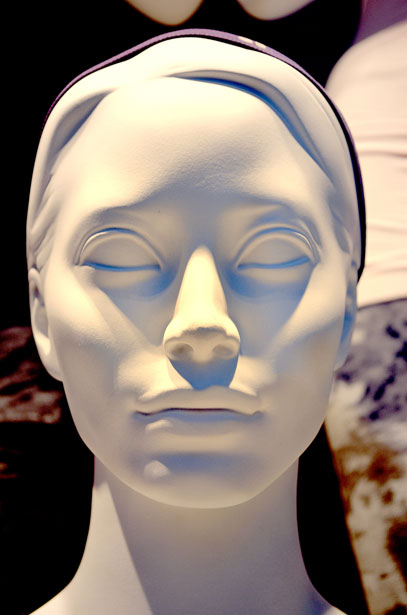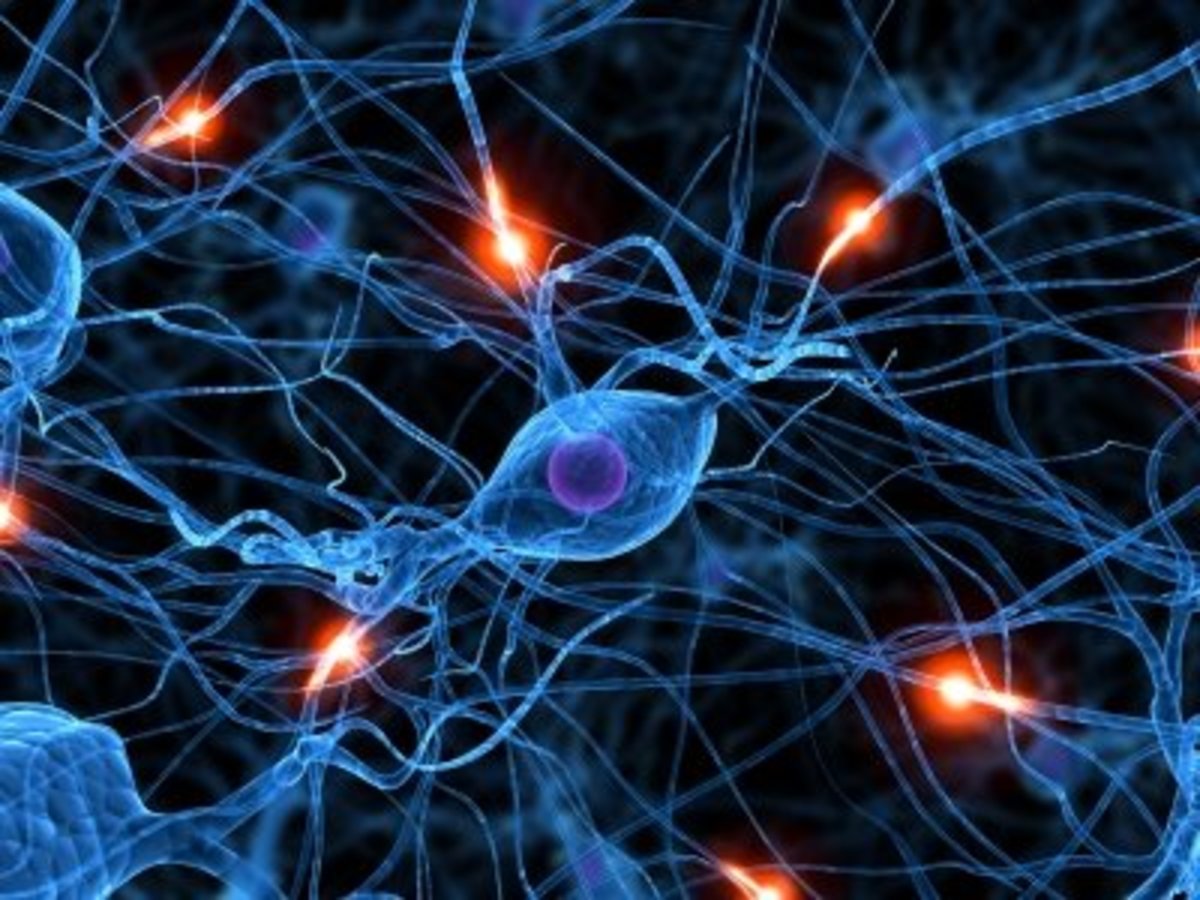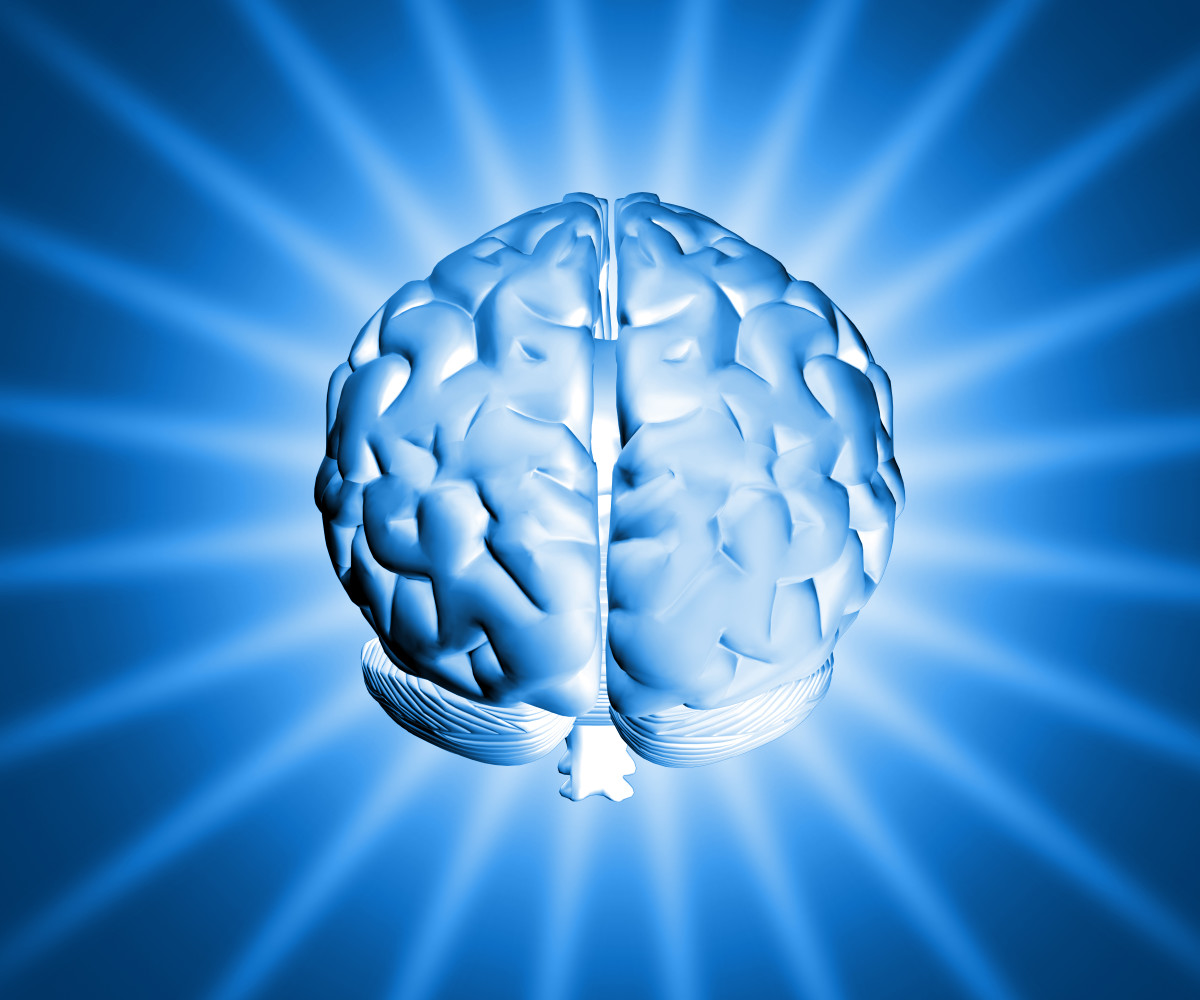Why Women Inherit Depression More Often than Men
Gender Plays a Role in Depression

Women and Depression
Men and women are different in many ways. Of course there is the physical differences that we readily see, but there are also psychological differences.
Gender plays a major role in specific psychological disorders. For example, women are two times as likely to suffer from major depression as men. Men are more than two times as likely to become alcohol dependent. Antisocial personality disorder is three times as common in men, as it is in women. Men are four times as likely to die by suicide. Women attempt sucide almost three times as often as men do. Women are three times as likely to have an anorexia or bulimia as men. Women are 75% more likely to have a binge eating disorder than men. There seems to be no difference in gender when it comes to bipolar disorder and schizophrenia. Autism is 4 times as prevelant in boys than girls, although girls who have autism, tend to have more impairment and severe symptoms than boys. The ratio of 2 to1 is the same across all boundaries of race, ethnicity,and socioeconomic status.11 other countries in the world have reported the same ratios.
Depression is the main cause of disability in women worldwide. 1 out of 8 women will have a major depressive episode at some time their lifetime.
Heredity May Play a Role With Depression in Women
In one research study done on twins, by Professor Kenneth S. Kendler at the Medical Schoo in the University of Virginia, it was found that women were more likely to inherit depression than men were. They analyzed depression in 42,161 pairs of twins. 15, 493 pairs of the twins were identical. This research uncovered hereditary factors may play a role in depression. There may be a gene for depression that affects women more than men. It was found that 42% of women are suffering from depression, due to this inherited gene. 29% of men who suffer from depression, appear to have this same gene. Women are also more prone to depression due to hormonal changes. This led the researchers to pinpoint specific times when women are more prone to depression, post partum (after giving birth), and pre menstrually. Men’s moods are less affected.by hormones.
Researchers have identified several areas of alleles. Each of us inherits 2 alleles for each gene. One allele comes from the mother, the other from the father. Science has made an association between severe depression and someof these alleles. Some of these associations occur only in women and in one of the areas that is related to the regulation of female hormones.
Sometimes events can trigger a depression. But as science learns more about the biological connection to depression, it can be seen that other factors may play a role in mood disorders. Serotonin is a chemical in the brain that helps regulate our mood. Researchers now believe that some genes may deprive the brain of enough of this hormone. This gene was found to be 10 times more common in depressed people than in people who did not suffere from depression. It was also found that patients who had this mutated gene did not respond well to anti depressants that commonly work with serotonin. This gene makes some people more vulnerable to depression than others. It is estimated that depression may be 40-70% inherited.
There also, have been studies done on the effects mothers' depression has on children.
Why Do Women Suffer More from Depression than Men
It is not totally understood why there are gender differences in psychogical disorders. Some scientists believe the reason may be hereditary. In one research study done on twins, by Professor Kenneth S. Kendler at the Medical Schoo in the University of Virginia, it was found that women were more likely to inherit depression than men were. They analyzed depression in 42,161 pairs of twins. 15, 493 pairs of the twins were identical. This research uncovered hereditary factors may play a role in depression. There is gene, it appears, for depression that affects women more than men. It was found that 42% of women are suffering from depression, due to this inherited gene. 29% of men who suffer from depression, appear to have this same gene. Women are also more prone to depression due to hormonal changes. This led the researchers to pinpoint specific times when women are more prone to depression, post partum (after giving birth), and pre menstrually. Men’s moods are less affedted.by hormones.
Researchers have identified several areas of alleles. Each of us inherits 2 alleles for each gene. One allele comes from the mother, the other from the father. Science has made an association between severe depression and someof these alleles. Some of these associations occur only in women and in one of the areas that is related to the regulation of female hormones.
Sometimes events can trigger a depression. But as science learns more about the biological connection to depression, it can be seen that other factors may play a role in mood disorders. Serotonin is a chemical in the brain that helps regulate our mood. Researchers now believe that some genes may deprive the brain of enough of this hormone. This gene was found to be 10 times more common in depressed people than in people who did not suffere from depression. It was also found that patients who had this mutated gene did not respond well to anti depressants that commonly work with serotonin. This gene makes some people more vulnerable to depression than others. It is estimated that depression may be 40-70% inherited.
Once Puberty Sets In, Females Have More Depression than Males
There are about 15 million people who suffer from depression in a given year. The majority of sufferers are women. Nearly ⅔ of people who have depression do not get the help they need. Women develop clinical depression twice as often as men. Nearly 1 out of 4 women will havean episode of major depression at some point at some point in their lifetime.
Depression is mood disorder that affects nearly all aspects of a person’s life. They feel sad, hopeless, worthless, and helpless. Depression affects people on a range from mild, moderate to severe.
Girls and boys prior to adolescence have the same rate of depression. Once puberty sets in, a girl has a higher risk of developing depression at the rate twice that of boys. Hormone levels are most likely related to hormone levels that fluctuate due to puberty, pregnancy, giving birth, menopause, and through out a women’s fluctuating hormones from her menstrual cycle.
Depression and Women

Factors that Put Women More at Risk for Depression
The (National Institutes of Health) NIH listed factors that put a women more at risk of depression `
- hormonal
- biological
- reproductive
- genetic
- interpersonal
- personality
- psychological predisposition
- family history
- loss of a parent prior to the age of 10
- little social support network
- loss of job
- loss of mate through death or divorce
- physical or sexual abuse as a child
- certain medications
- post partum
- seasonal affective disorder in the winter
- PMDD - premenstrual dysphoric disorder (affects about About 3% to 5% of menstruating women)
Women May Have More Stress Factors than Men
Although depression can occur at any age, the typical age of onset is between 25 and 44 years old. Depression does run in families. When it is inherited, the age of onset starts between 15 and 30 years old. Inheritable depression is much more common in women.
Hormonal changes can make a woman more prone to depression , but hormonal changes by themselves will not cause depression. there most be other facttors, such as biolgical, genetic traits, and life events that will trigger or contribute to the depression.
More women live in poverty than men. Women tendto haemore limited earning power than men. Women have less access to health care and community services. These factors affect a woman’s status and may make them feel uncertain about their future and more powerless about the control they have over their own lives. All thesethingscontribute to the risk of depression in women.
Women are often trying to balance home and work. They may have a couple of jobs. Middle aged woman may find themselves as the sandwich generation,trying to be the caregiver for their children and their aging parents. Stress factors like these can make a woman more prone to depression.
Signs of Depression
Typical Signs of Depression:
- Feeling sad guilty or hopeless
- Lack of interest in things you used to enjoy
- changes in your sleeping patterns
- Feeling fatigued
- Unexplained physical symptoms without an apparent cause
- Changes in your appetite
- Significant weight loss or weight gain
- Thoughts of suicide and feeling extreme negativity about your future
Differences in Depression Between Men and Women
Men
| Women
|
|---|---|
self medicate with alcohol and drugs
| Use food, friends, and "love" to self-medicate
|
commit more suicide
| commit suicide less often than men
|
more successful on their first attempt at suicide
| rWomen attempt suicide more often than men, but are less successful
|
deny their feelings more
| more likely to be associated with stress
|
may develop behavioral problems
| depression occurs earlier, lasts longer, is more likely to reoccur
|
Blame others
| Blame themselves
|
Feel angry, irritable, and ego inflated
| Feel sad, apathetic, and worthless
|
Feel suspicious and guarded
| Feel anxious and scared
|
Create conflicts
| Avoid conflicts at all costs
|
Feel restless and agitated
| Feel slowed down and nervous
|
Need to feel in control at all costs
| Have trouble setting boundaries
|
Find it “weak” to admit self-doubt or despair
| Find it easy to talk about self-doubt and despair
|
more affected by seasonal affected disorde
| |
women deal with greater fluctuating hormones
| |
suffer from more anxiety and eating disorders than men
|
What Women Believe About Depression
Women get diagnosed with depression more often than men, possibly because women may be more aware of their own symptoms. Men are more reluctant to accept that they have a problem and may resort to self medicating through alcohol and drugs.
30% to 50% of the time,women with depression, are misdiagnosed
Less than half of women with clinical depression will get help, even though clinical depression is very responsive to treatment. More than 80% can be treated with psychotherapy, medication, or a combination of both.
In a survey done by the National Mental Health Association, called “American Attitudes about Clinical Depression and its Treatment,” done March 1996:.
-
The majority of women, more than ½, believe it’s normal for a woman to feel depressed during menopause. They believe no treatment isn’t needed.
-
More than ½ of women think depression is a nomal part of aging.
-
More than ½ believe post partum depression for at least 2 weeks after giving birth is normal
-
41% of women said embrrassment or shame about depression would stop them from seeking treatment.
-
More than ½ of women believe they know more about depression than men do.
Abused Women are More Prone to Depression
It Pays to Get Help, You Will Only Feel Better
Women are 3 times as much as men to become depressed due to stressful events. Women out number men in their exposure to severe stress, such as sexual abuse, domestic violence. Women are usually the primary caretakers, and tend to defer their own needs more than men. The stress of too many obligations in too little time and being overly responsible, lower income and less control over many matters in their lives makes a woman more prone to depression than a man. The mix of stress hormones, female hormones, serotonin and norepinephrine may also make women more vulnerable to depression. Women are also more sensitive to their emotions than men.
If you are seeking the help of a mental health professional, make sure they are licensed in your state. Mae sure they have experience in dealing with depression. Find out what method of therapy they use, and how it will be effective for you. Find out the costs, and is there a sliding fee so they will work with you. Do they have knowledge about medication, if you need it, so they can guide your doctor, or a doctor they are affliated with. Discuss before you start treatment with them, how they will go about helping you.
Be confident in the knowledge that talk therapy and/or medication is extremely effective in helping people with depression. It pays to get the proper help. You will only feel better.
.
More Articles by ToKnowInfo
- About Mental Health - Promoting Psychological Well B...
In order to experience joy, love, to laugh, to work, to learn, and to contribute to others and our environment, good health is the most important and valuable asset we have. Our health and our well being is crucial to our happiness, our... - Life Coaching - Psychological Triggers that Make Us ...
Life Coaching - Psychological Triggers that Make Us Do The Things We Do We try to think of ourselves as wise, that we know ourselves, that we can read others, and that we have a self awareness about the world around us. Yet, we all do things and we.. - What does feeling empowered feel like to you?
Feeling powerless or feeling empowered. Which would you rather feel? Feeling powerless is a terrible feeling. Empowerment is what we need to seek to gain happiness, and a fulfilling, gratifying and satisfying life. Empowerment comes from a strength.. - Happiness and Friendships
It has been proven through the ages that strong friendships have a positive effect on our quality of life. Friends do so much for us. They fill emotional space left by family members and add a dimension to our lives that enrich and impact us in ways. - Psychologyisms: Predicting Our Own Feelings - Do We ...
Did you ever wish you had a crystal ball, psychic powers, the ability to foretell the future? It appears that none of us have these skills, so scientists have been studying how people make predictions, which influence their decision making. An... - Peoplality: Where Does Personality Come From? - Disc...
Where exactly personality comes from still has some mystery to it. Genetics, environment, experiences, all play a big role in who we are, in our behavior and how we react to situations. Science has long studied how biology and genetics influence our. - Jealovers: Jealousy - Domestic Violence and Abuse
Jealovers and Domestic Violence Jealousy in Relationships and Abusive Behaviors that Lead to Domestic Violence What is in this article? · abusive partners · what is jealousy · domestic violence and jealousy · irrational jealousy in... - Success Stories - Never Too Old, Never Too Late ...
Success stories can be achieved at any age.As we live longer and longer, the ages between 50 and 80 is becoming a time for reinventing ourselves, pursuing our dreams and coming into our own terms of self understanding. Around the age of 50, people...







